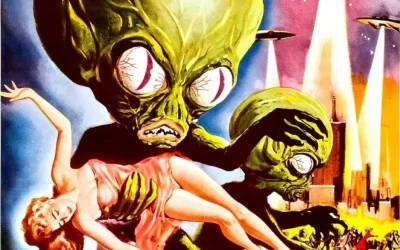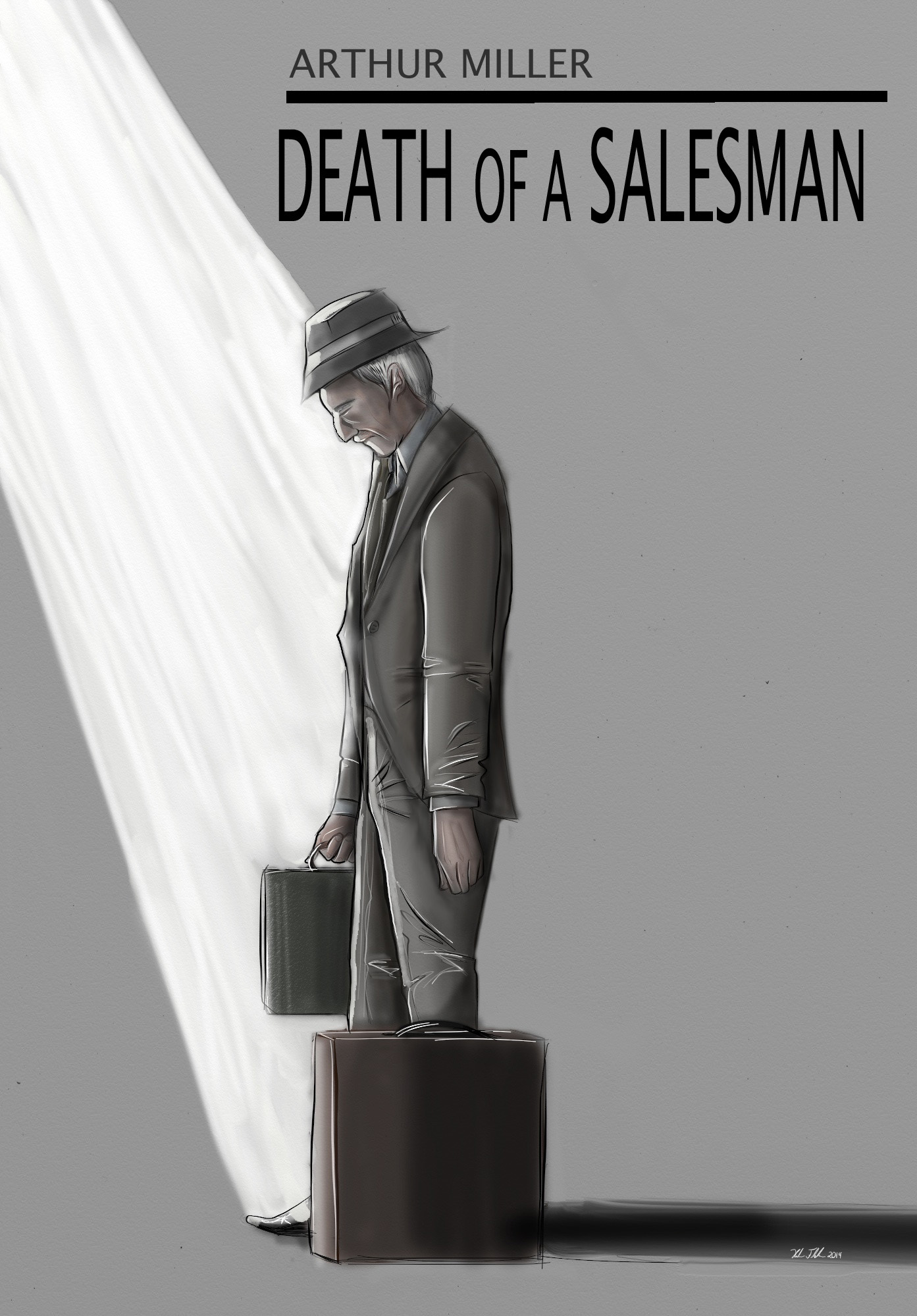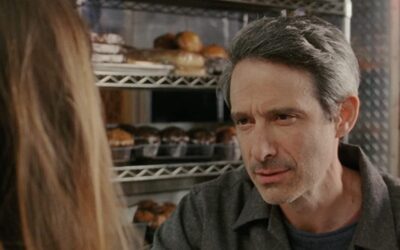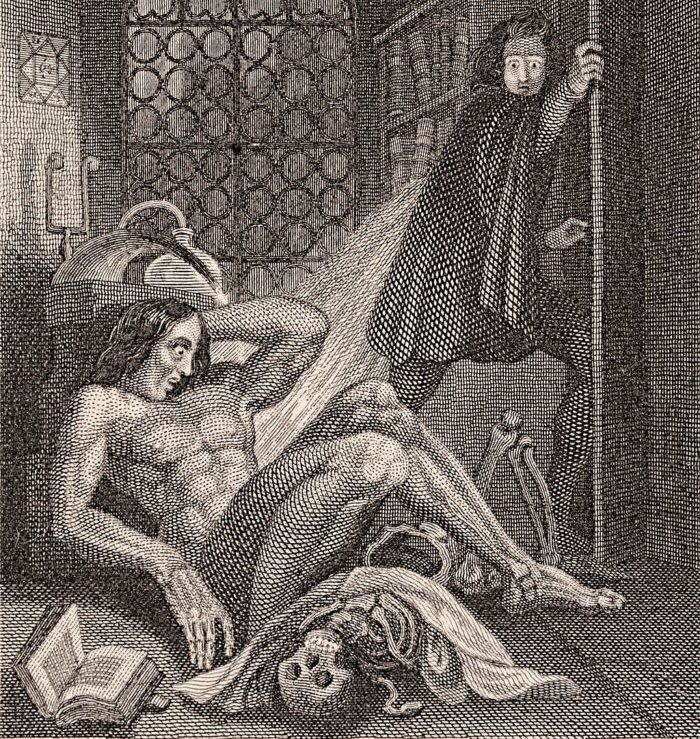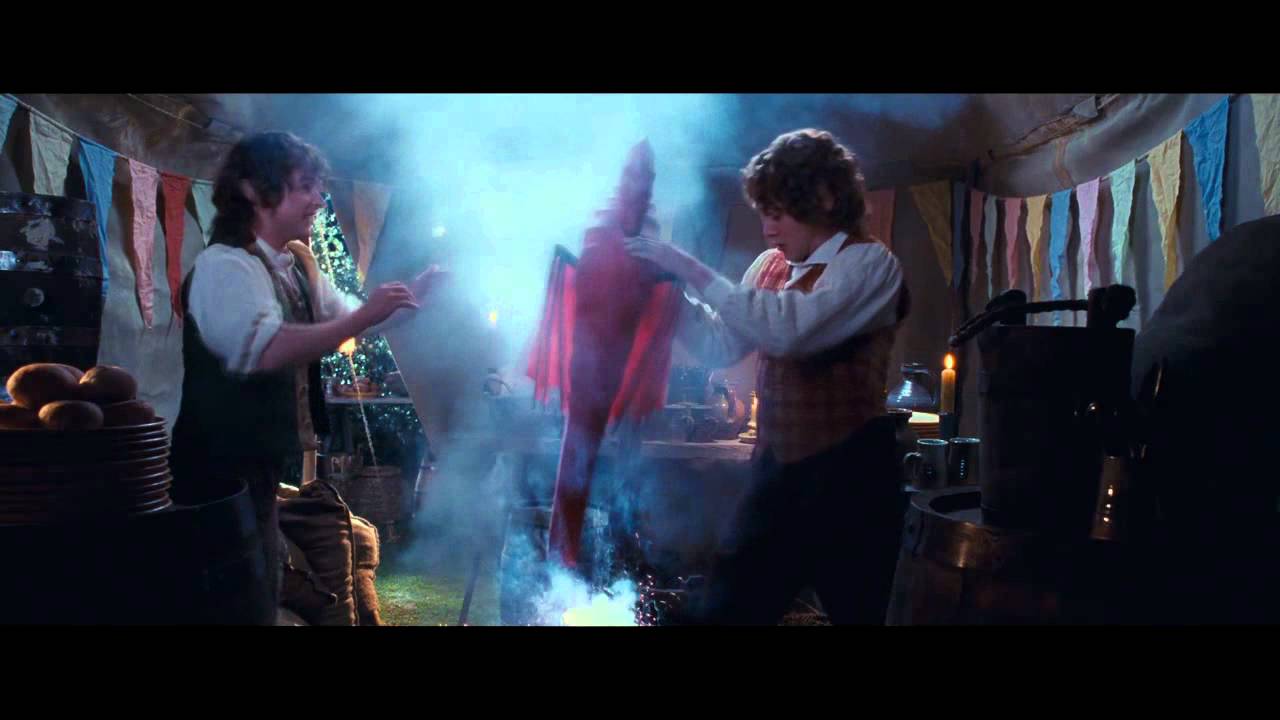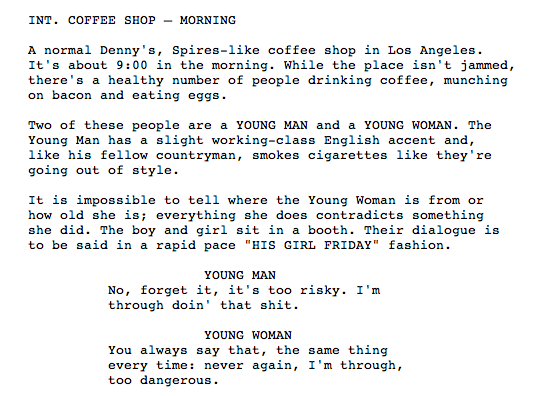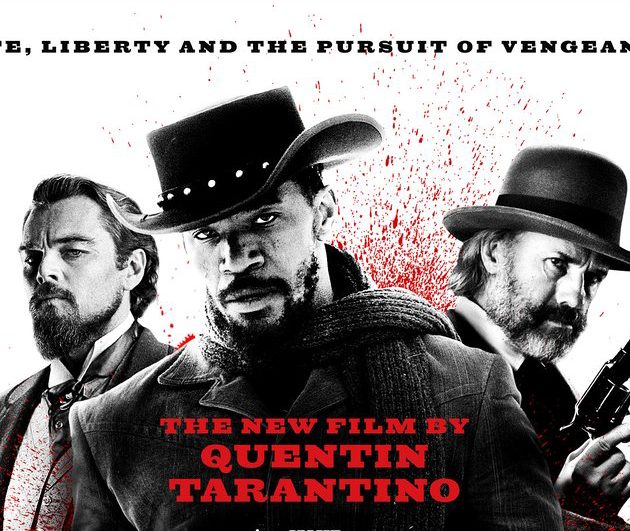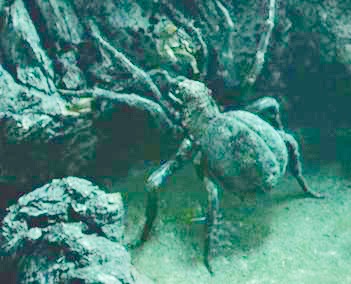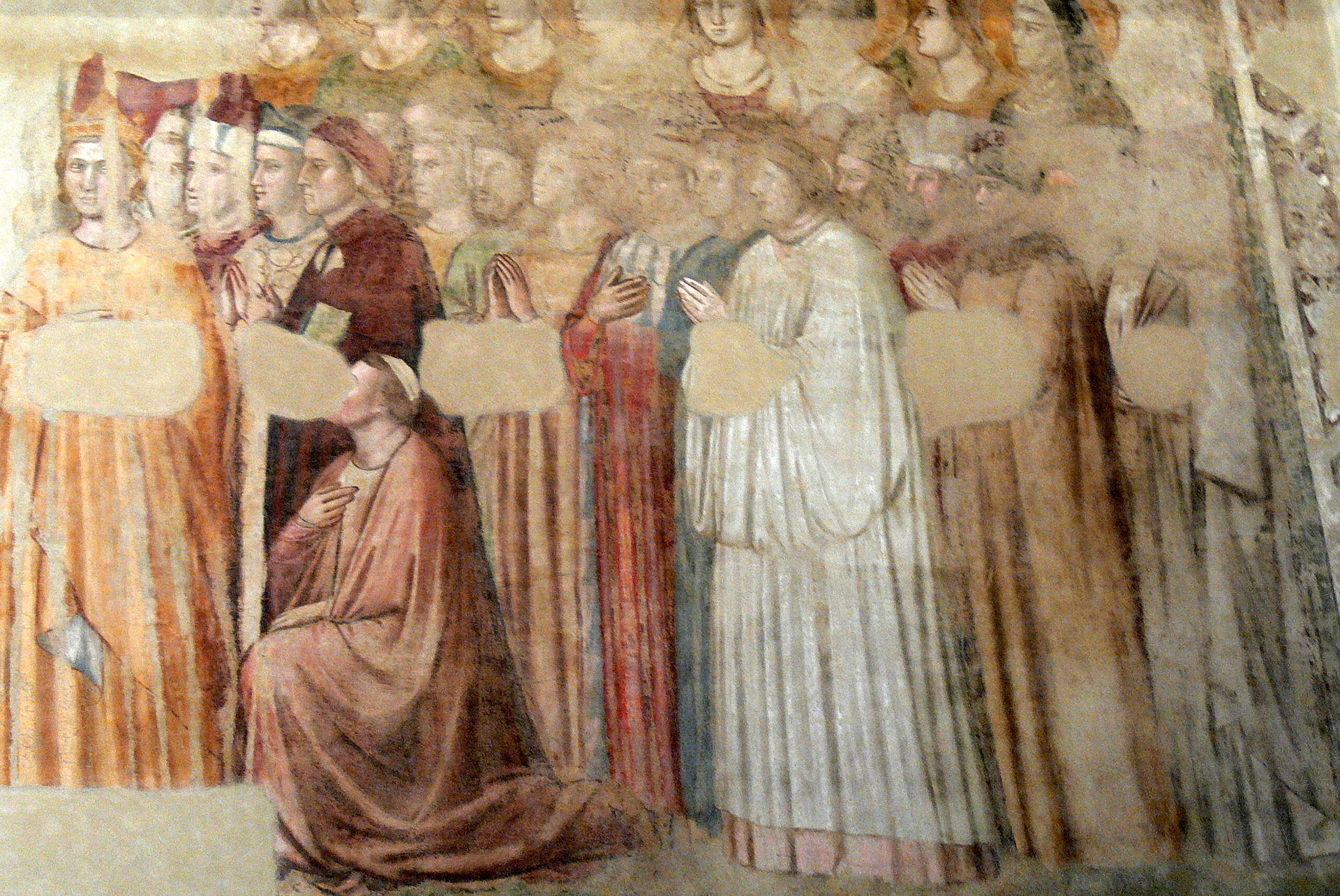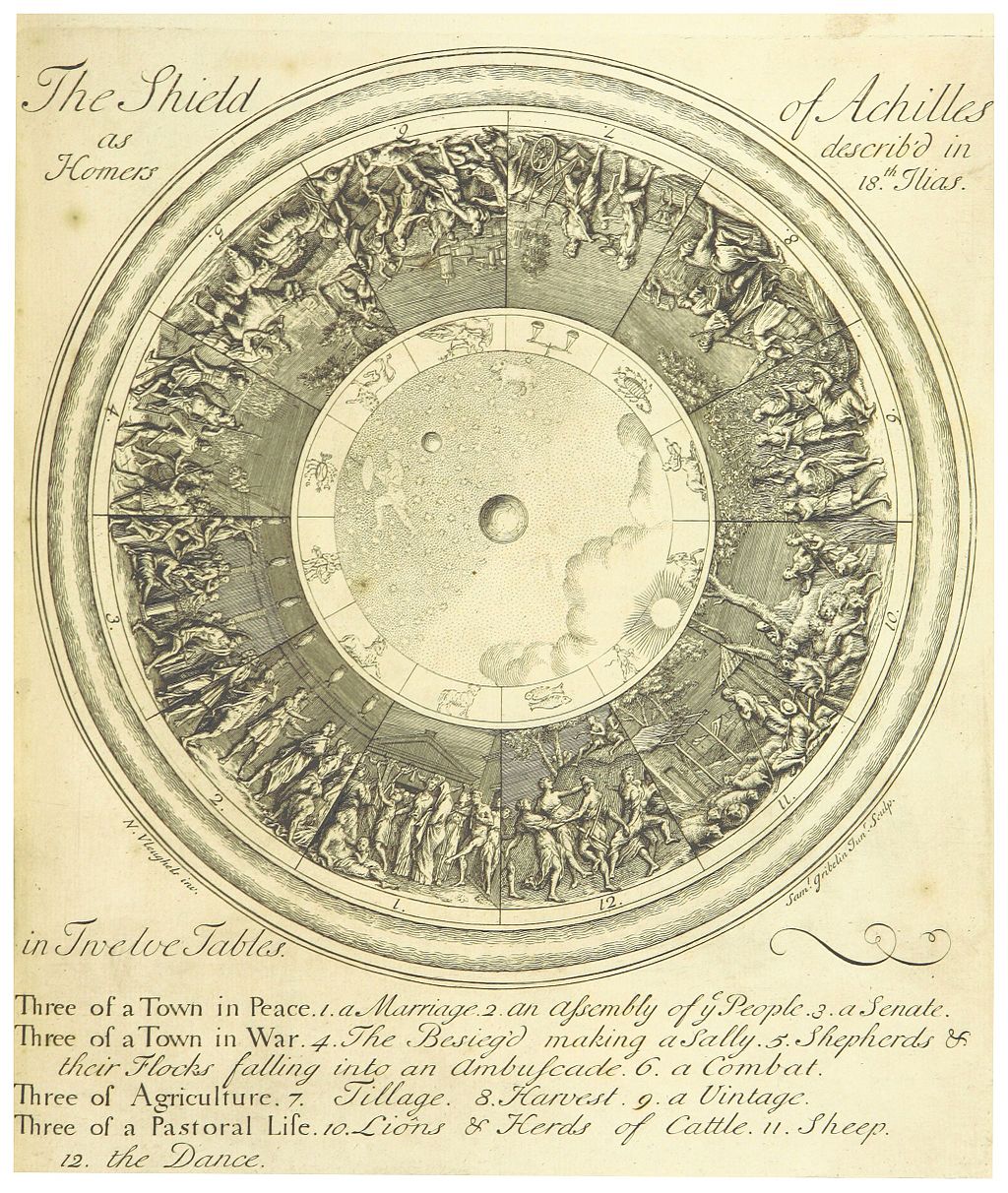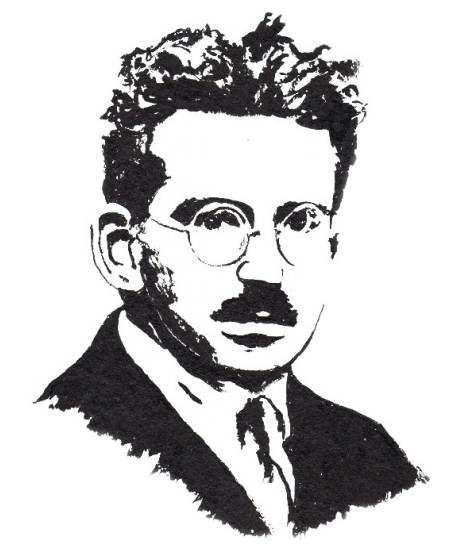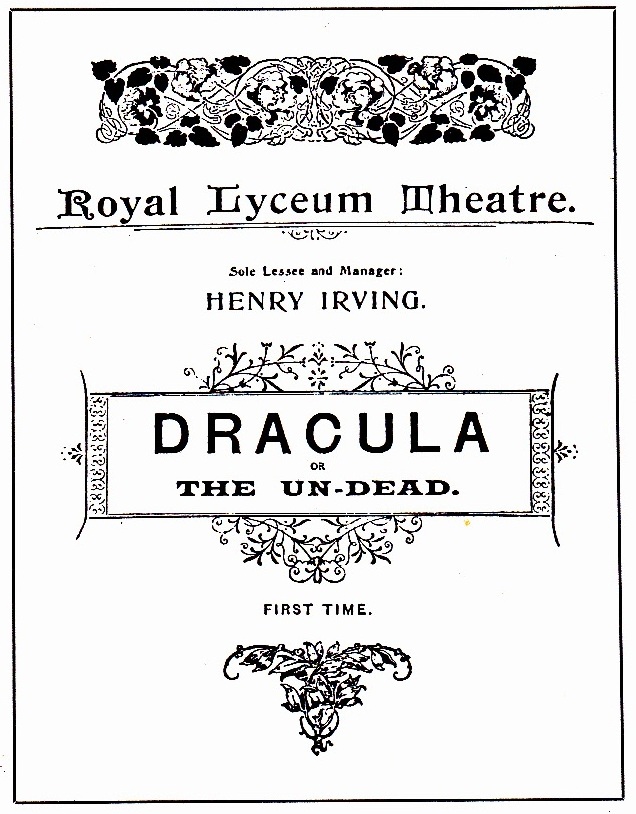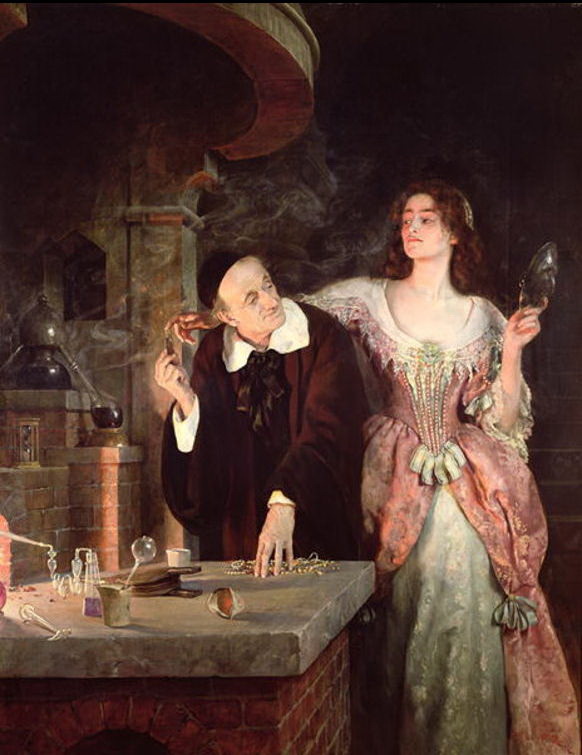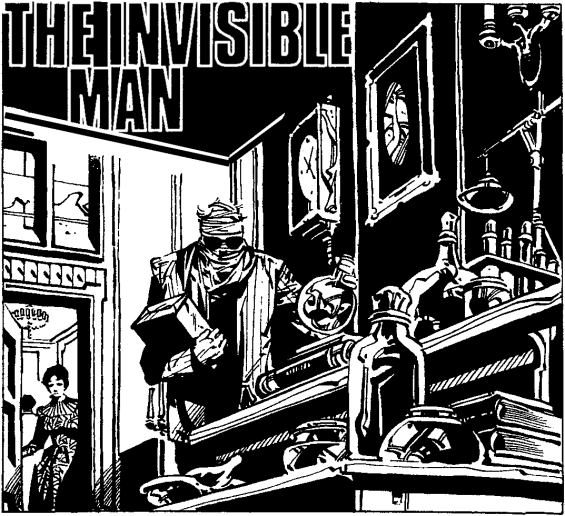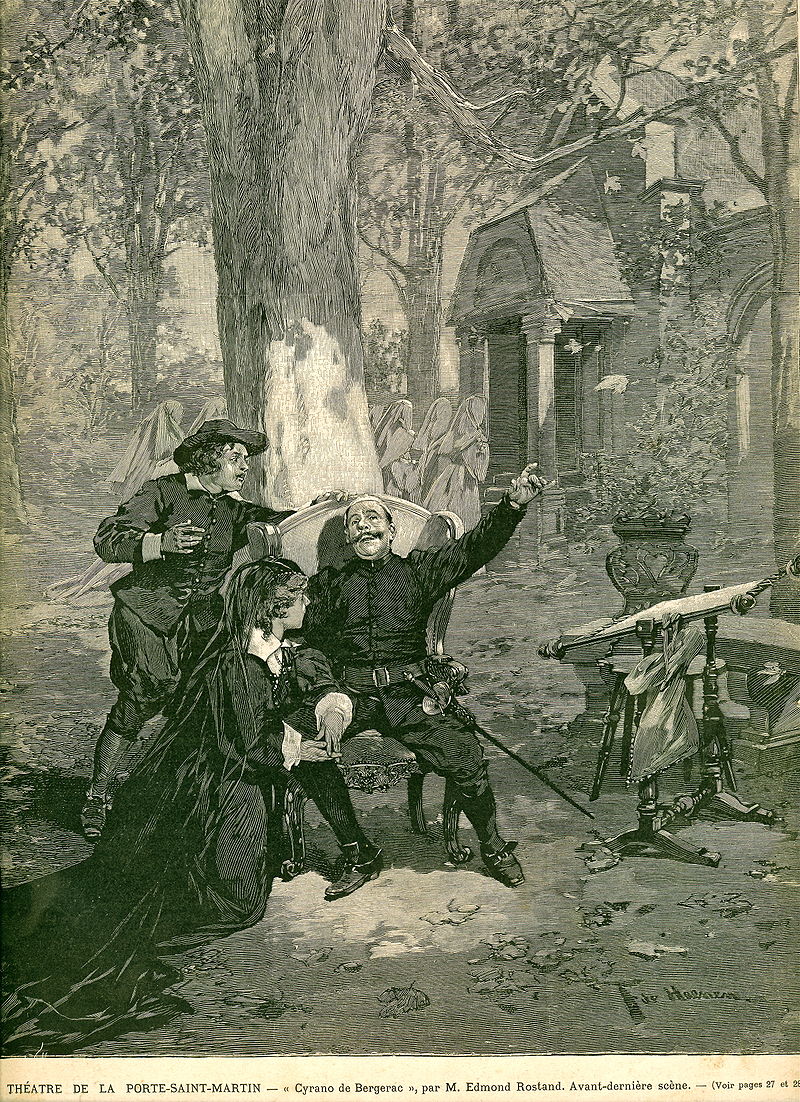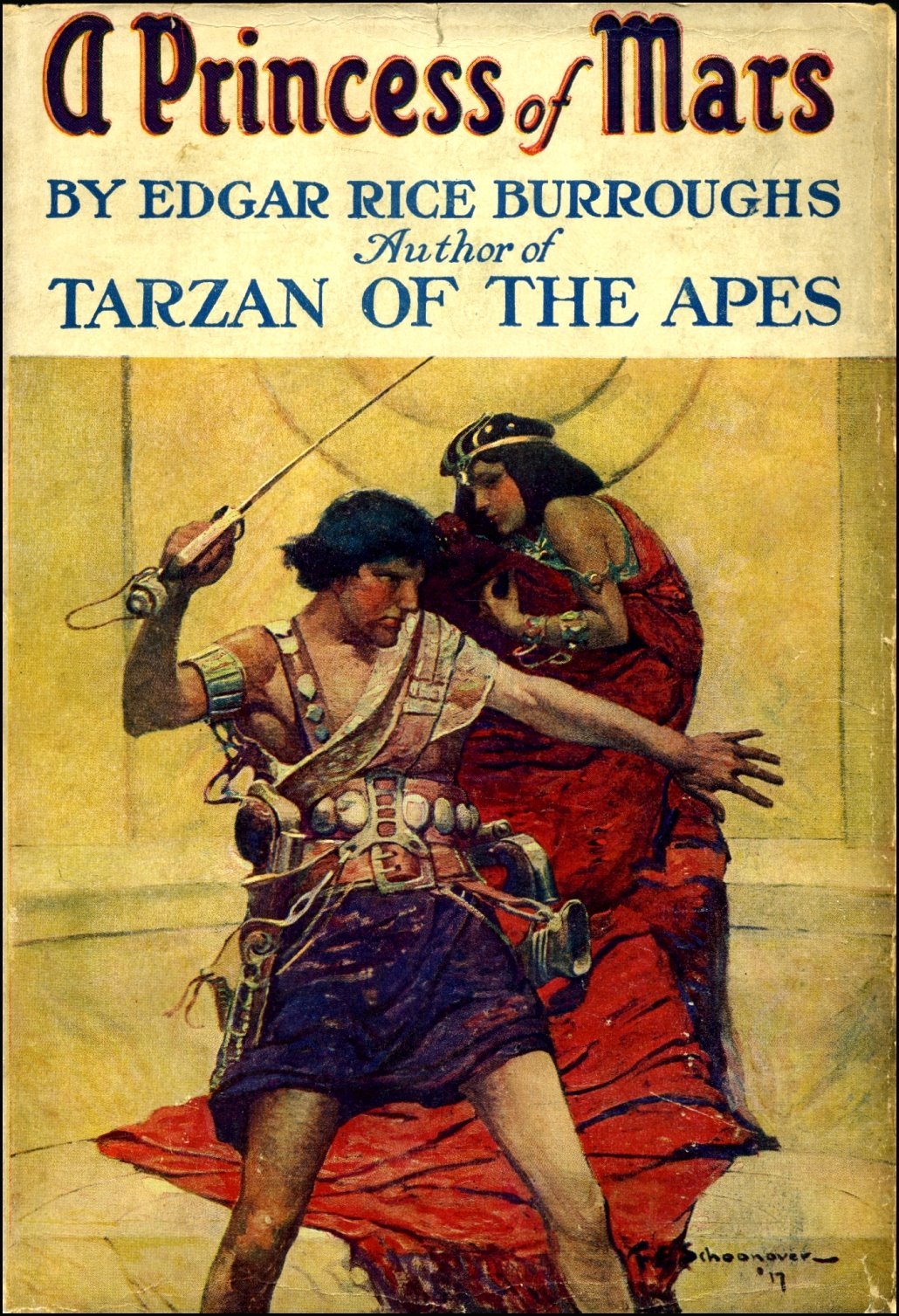"The Good SpaniardOur revels now are ended. These our actors,As I foretold you, were all spirits andAre melted into air, into thin air:And, like the baseless fabric of this vision,The cloud-capp’d towers, the gorgeous palaces,The solemn temples, the great globe itself,Yea, all which it inherit, shall dissolveAnd, like this insubstantial pageant faded,Leave not a rack behind. We are such stuffAs dreams are made on, and our little lifeIs rounded with a sleep."(Shakespeare Act III Scene I,...
The Lost Scientist
The Lost Scientist “Everybody's a mad scientist, and life is their lab. We're all trying to experiment to find a way to live, to solve problems, to fend off madness and chaos.”-David Cronenberg There is a particular movie hero that is lost to time, that existed briefly, flourished and then vanished at the dawn of the 1960’s, never to be seen again—the 50’s B-Movie Scientist. Movies change. The tides ebb and flow, the moon waxes and wanes, presidents come and go, and even movies aren’t...
Arthur Miller
Arthur Miller “The theater is so endlessly fascinating because it's so accidental. It's so much like life” – Arthur Miller When I think of Arthur Miller I cannot help but think of the harsh realism he portrays in his plays. Nowhere is this more evident than in Death of A Salesmen, a stark look at a decaying family through the eyes of an increasingly cruel and mentally unstable man—Willy Loman. Willy is a senile old salesman, failing in his work, alienating his family, and slipping in and out...
Golden Exits
Golden Exits Golden Exits is a confused film, not in plot but also in its execution. As a viewer you don’t get the sense of a three-act structure, but more of a day-to-day travel log that starts abruptly and ends just as suddenly. It revolves around a young Australian girl named Naomi (played by Emily Browning) as she moves to New York for the summer to work as archivist for a married man named Nick (played, interestingly enough by Ad Rock of the Beastie Boys) whose advances toward her make...
Ready Player One — Quests and Avatar
Ready Player One -- Quests and Avatar “I am malformed, scarred, and small, but... abed, when the candles are blown out, I am made no worse than other men. In the dark, I am the Knight of Flowers” -Tyrion Lannister, A Storm of Swords Wade, the protagonist of Ready Player One, is in many ways hiding in the shadows. He has aspirations of being one of the fabled heroes of lore, he chooses to don the name Parzival after one of the original grail knights, he sets himself on an almost...
Dante Alighieri and St Augustine
Dante Alighieri and St Augustine Abundantly clear to anyone comparing the two authors, St. Augustine and Dante Alighieri are like oil and water when it comes to their opinion of pagan works such as Virgil’s Aeneid or Homer’s Iliad. Augustine rebukes the material as “foolish delusions” (37) Book 17, while Dante showers praise upon Virgil from the very onset when he casts him as his very own guide in Inferno, saying about the man: O light and honor of all other poets,may my long study...
The scene that provides a preview to what’s next
The scene that provides a preview to what's next For my scene of enchantment, I have to go with the dragon firework that goes awry in The Shire—as seen here: Things are relatively normal as we start out, Frodo and company are just having a good old time at Bilbo’s party, letting off small wholesome fireworks, but things take a turn for the wondrous when Mary and Pipin abscond with one of Gandalf’s more wild fireworks. It takes to the sky, the shire folk’s curiosity turns...
Planning and Follow through
Planning and Follow-through “You can trust us to stick with you through thick and thin--to the bitter end. And you can trust us to keep any secret of yours--closer than you keep it yourself. But you cannot trust us to let you face trouble alone, and go off without a word. We are your friends” Merry telling Frodo he’s going with him to Bree I realize that a big part of this assignment was planning and following through, but this event was very much the textbook definition of a happy...
Pulp Fiction Screenplay Review
Pulp Fiction Screenplay Review Like many millennials with an interest in film, Quentin Tarantino was one of the first directors who really reached me, and made me realize the power of the auteur. His film Pulp Fiction was a movie that broke all the rules, no matter what, you couldn’t get a handle on it, anticipate what would happen next, or even prescribe it a fixed genre. It’s dark comedy, it’s gangland camp, it’s a fever dream, it’s a classic watershed movie madly in love with other...
Django Unchained Screenplay Review
Django Unchained Screenplay Review Here we have a strange specimen. Samuel L. Jackson has long teased that somewhere there exists a five-hour cut of Django Unchained—which is an impressive length of time. That means that there is roughly two hours of material cut from the theatrical release and nowhere is that more apparent then when you read the script. There is so much cut content that you could take it out and make an entire film from it. The most apparent change between the script...
Shelob
Shelob There agelong she had dwelt, an evil thing in spider-form, even such as once of old had lived in the Land of the Elves in the West that is now under the Sea, such as Beren fought in the Mountains of Terror in Doriath, and so came to Luthien upon the green sward amid the hemlocks in the moonlight long ago. How Shelob came there, flying from ruin, no tale tells, for out of the Dark Years few tales have come. But still she was there, who was there before Sauron, and before...
It’s all too much
It's all too much “I have come home at last! This is my real country! I belong here. This is the land I have been looking for all my life, though I never knew it till now...Come further up, come further in!” –CS Lewis Spoken by the magical creature Jewel at the end of Lewis’s The Last Battle, these words came to mind as I found myself in bed, deep within my grandmother’s basement. Being in my early twenties, I always find it bittersweet revisiting her house, on the one hand, it holds...
St Augustine and Dante
Abundantly clear to anyone comparing the two authors, St. Augustine and Dante Alighieri are like oil and water when it comes to their opinion of pagan works such as Virgil’s Aeneid or Homer’s Iliad. Augustine rebukes the material as “foolish delusions” (37) Book 17, while Dante showers praise upon Virgil from the very onset when he casts him as his very own guide in The Divine Comedy, saying about the man: O light and honor of all other poets, may my long study and the intense love that made...
Vicissitudes
Vicissitudes Pondering over the stories of The Iliad, Burial at Thebes, and The Epic of Gilgamesh I was reminded of a quote by author Lemony Snicket: “Fate is like a strange, unpopular restaurant filled with odd little waiters who bring you things you never asked for and don't always like” (Horseradish). Lemony may be living centuries apart from the likes of Socrates and Homer, but his words ring true. Despite being incredible, larger-than-life characters, the lead characters of these three...
So it Goes
So it Goes Pondering the stories of The Iliad, The Burial at Thebes, and The Epic of Gilgamesh, I was reminded of the end of The Great Gatsby, where F. Scott Fitzgerald writes those unforgettable words: “So we beat on, boats against the current, borne back ceaselessly into the past.” Fate, destiny, and freewill each play a role in these books. While fate plays a large part in all three stories, it does so in varying degrees from tale to tale. This essay will attempt to prove that comparing...
Little Miss Prometheus
Little Miss Prometheus The Shape of Things is a look at the moral choices an artist is faced with, and what is within the limits of acceptability. President John F. Kennedy shared his thoughts on the matter when he addressed Amherst College: “If art is to nourish the roots of our culture, society must set the artist free to follow his vision wherever it takes him” (“President John F. Kennedy: Remarks at Amherst College, October 26, 1963”). His points are indeed valid, but they raise an...
Aura
Aura Walter Benjamin’s “A Work of Art in the Age of Mechanical Reproduction” is a philosophical text that explores the downfall of art due to the age of mass reproduction in which we live. Benjamin classifies art that is original, which exists only as a single whole with no copies, as having an “aura” -- a vague atmospheric quality that makes it special. When paintings, text, and all other works of art are reproduced into perfect copies, the object in question loses this “aura” and is now...
Ignorance is Bliss
Ignorance is Bliss In the latter end of the 3rd century BC, Solomon, King of Israel wrote down his philosophy on the meaning of life, “…And I set my mind to know wisdom and to know madness and folly; I realized that this also is striving after wind. Because in much wisdom there is much grief, and increasing knowledge results in increasing pain.” (New American Standard Bible, Ecclesiastes 1:17-18). Agree or disagree, the above statement holds truth in regards to the passages explored thus...
Preformulation
Preformulation The word “preformulation” appears in Walker Percy’s “The Loss of Creature,” a made-up phrase that has yet to enter any of the world’s dictionaries. Percy uses “preformulations” to describe the thoughts and feelings a person formulates about a certain object, place, or individual that colors the viewer’s expectations before the actual visage is seen or experienced for oneself. It implies that the actual seeing of the thing will differ, sometimes drastically, from the images that...
Dracula
Dracula "Das Unheimliche" A saying by Alfred Hitchcock perfectly encapsulates the book, this book: "There is no terror in the bang, only in the anticipation of it," Dracula forgoes copious action for atmosphere and tension. It is a tale told through subtlety, and a strong pacing that weaves a powerful narrative that is light on morals. Unlike lesser horror stories, Dracula does not commit the cardinal sin of merely introducing the Count as a suave, debonair, gentleman, and then suddenly reveal...
Phantasmagoria
Phantasmagoria Discussing "Alice in Wonderland" and its sister novel: "Through the Looking Glass" is difficult. Contained within their pages isn't so much a story as it is a series of strange vignettes with little or no connectivity. Despite the complete lack of a narrative the books are surprisingly absorbing, if only so we can see what sort of claptrap Alice will stumble into next. Stumble is the right word because for the entirety of these books she has no motive or purpose for being...
Griffin
Griffin Continuing with the theme of scientists and experiments that go horribly wrong, here comes Griffin, a man not too dissimilar from Victor Frankenstein, but overall far more sinister. H.G. Welles doesn't even remotely try to paint the Invisible Man as heroic in any sense; he's brash, arrogant, violent, and incredibly vulgar--yet he's the most engaging protagonist yet in this course. Throughout the book he's constantly raining on people's parades for almost no reason. There's at least...
Aylmer
Aylmer - The Birthmark The potential discussion topics about "The Birthmark" are numerous, but none are as captivating as Aylmer himself. He's a vile character who disrespects the metaphysical world and his egotistical experiments rightfully lead to his downfall. To summarize, Aylmer is a brilliant scientist who's wife, Georgiana would be the most beautiful woman in the world were it not for a small insignificant birthmark on her left cheek. When he offers to remove her imperfection, it seems...
Foster Parent
The characters in Frankenstein endure severe suffering, almost akin to the residents of Dante's ninth circle. Like most tragedies, the hero's single inescapable vice feeds his actions and ultimate demise. Hamlet's was indecision; Othello's was jealousy; and Victor's is rooted in pride. A vain egotist throughout most of the book, Victor Frankenstein is so confident and emotionally invested in his bizarre experiment that he appears as a would-be despot: "A new species would bless me as its...
Invisibility Reveals
H.G. Wells' "The Invisible Man" brings to mind a famous quote from President Abraham Lincoln: "Nearly all men can stand adversity, but if you want to test a man's character, give him power." Griffin, the protagonist, begins as an idealistic young man, saying, "I will devote my life to this. This is worth while." (Wells) He was referring to experiments in optical density resulting in invisibility. This power is what ultimately tests his character. Initially Griffin's only inclination is...
Cyrano de Bergerac Review
"Cyrano de Bergerac" is a biographical tragicomedy of sorts, by Edmond Rostand written in 1897, loosely based on the real life poet of the same name. It played at the Folsom Lake College Performing Arts Center for one night only on March 21st 2013 where I viewed it. It's important to note that I am a fan of Edmond Rostand's work and the theatre troupe Aquila. So going in I expected a good performance, what I didn't expect was to experience the rare pleasure of getting completely absorbed in a...
Finite
Finite Episodic in nature, The Martian Chronicles features twenty-eight thinly connected vignettes that Ray Bradbury described as "a book of stories pretending to be a novel". The Martians play very small roles, and as characters they are quite forgettable. Portrayed neither as heroes, nor villains, the aliens have a finite essentiality to the plot and when they supposedly die-out the story merely continues without looking back, which reinforces the book's notion that no matter how...
Get Yourself to Mars
A Princess of Mars is a formulaic science fiction romance that chronicles the journey of civil war veteran John Carter to the planet of Mars, where he becomes immersed in an interspecies conflict. Readers might interpret the Barsoom series as a commentary on 18th century western culture, specifically focusing on the troubled relationship between Native American Indians and American-European Settlers. However, in the words of Edgar Rice Burroughs, "No fiction is worth reading except for...


